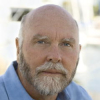Craig Venter

Craig Venter
John Craig Venteris an American biotechnologist, biochemist, geneticist, and entrepreneur. He is known for being one of the first to sequence the human genome and the first to transfect a cell with a synthetic genome. Venter founded Celera Genomics, The Institute for Genomic Researchand the J. Craig Venter Institute, and is now CEO of Human Longevity Inc. He was listed on Time magazine's 2007 and 2008 Time 100 list of the most influential people in the world. In 2010, the...
NationalityAmerican
ProfessionScientist
Date of Birth14 October 1946
CountryUnited States of America
How we understand our own selves and how we work with our DNA software has implications that will affect everything from vaccine development to new approaches to antibiotics, new sources of food, new sources of chemicals, even potentially new sources of energy.
I hope I'll be remembered for my scientific contribution to understanding life and human life.
When I started my Ph.D. at the University of California, San Diego, I was told that it would be difficult to make a new discovery in biology because it was all known. It all seems so absurd now.
Is my science of a level consistent with other people who have gotten the Nobel? Yes.
I spent 10 years trying to find one gene.
I somewhat joke that I know an awful lot because I learn from my mistakes. I just make a lot of mistakes. It's OK to fail in science just as long as you have the successes to go with the failures.
The rich agricultural nations are the ones that can adapt to the new biotechnologies.
The same oil that gets burned as fuel is also the entire basis for the petrochemical industries, so our clothing, our plastics and our pharmaceuticals all come from oil and its derivatives.
Energy is probably the most pressing demand on our planet.
Early on, when you're working in a new area of science, you have to think about all the pitfalls and things that could lead you to believe that you had done something when you hadn't, and, even worse, leading others to believe it.
Preventative medicine has to be the direction we go in. For example, if colon cancer is detected early - because a person knew he had a genetic risk and was having frequent exams - the surgery is relatively inexpensive and average survival is far greater than 10 years.
San Francisco is one of my favorite cities on the planet.
Sailing is a big outlet for me. It's one of the key things I've been able to do by commingling science with sailing and my love of the sea. Also, I have several motorcycles, and I like to go on motorcycle trips.
People think they're making individual decisions for themselves and their family not to get vaccinated. It's not just an individual choice - you're a hazard to society.